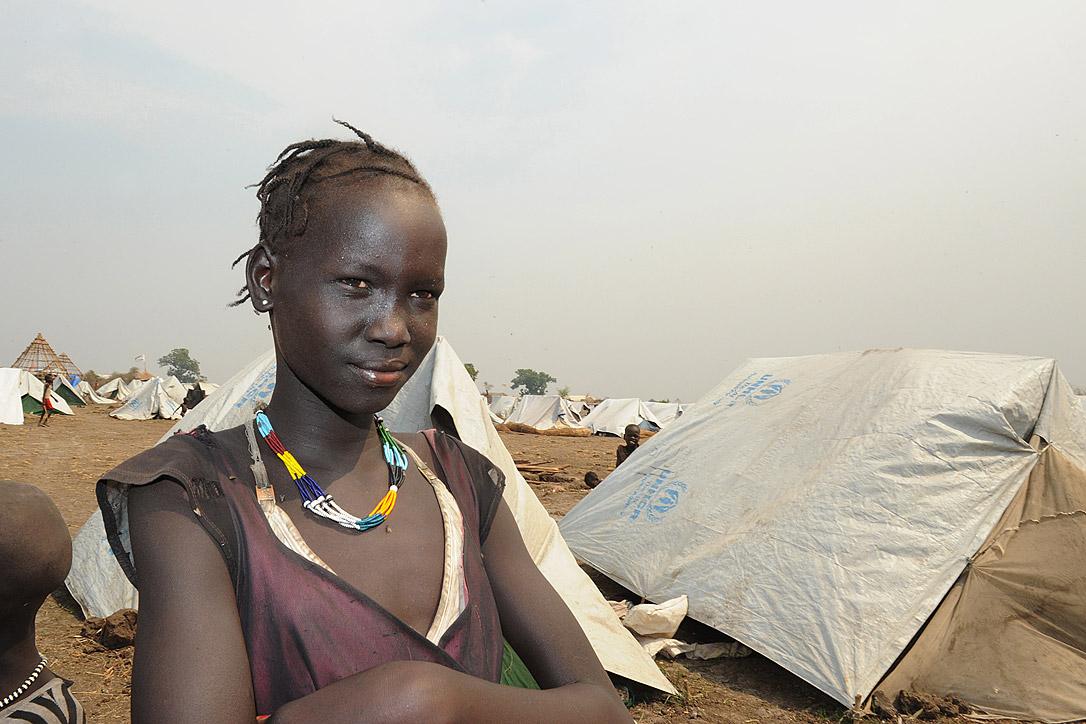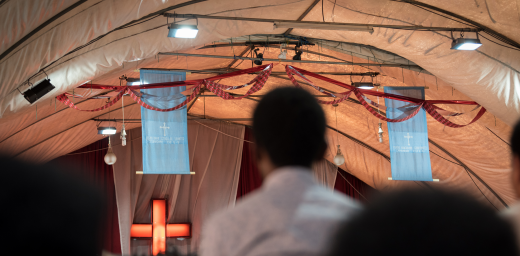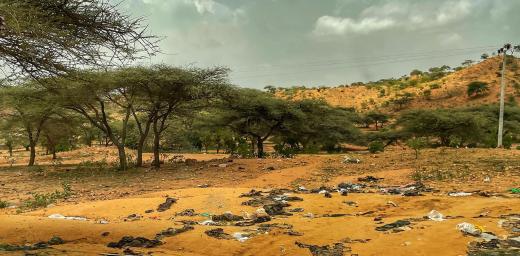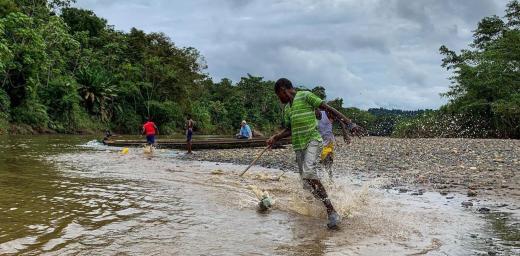LWF Ethiopia Says Refugee Camp Capacity Is “Severely Overstretched”

A South Sudanese girl at the Lietchor refugee camp in Gambella, western Ethiopia. Photo: Christof Krackhardt/ACT/Diakonie Katastrophenhilfe
Insufficient Funding Compounds Situation for over 90,000 South Sudanese
(LWI) – Thirteen-year-old Panum arrived in Ethiopia’s western region of Gambella accompanied by her elder sister Nyamoun. “Our father got killed in the war and our mother is in Juba. We have had no communication with her for the last several weeks, and she does not know that we are here in safety. We really don’t know when we will see her again or how to get in touch with her,” the younger sibling adds.
In another section of Lietchor refugee camp in Gambella, Marie a lactating mother with four other children says she was in her eighth month of pregnancy when they fled home. Her husband and their eldest son decided to stay behind. “Food is sparse and not enough for all of us. It is difficult to get by but we are glad to be alive,” she adds.
In Lietchor camp, The Lutheran World Federation (LWF) continues to provide essential services including water, sanitation and hygiene (WASH), but the growing influx of refugees and slow financial support for the South Sudan crisis poses significant challenges. “With up to 1,000 new arrivals per day, the relocation [to different settlements] and camp absorption capacities are severely overstretched,” says Sophie Gebreyes, representative of the LWF Department for World Service program in Ethiopia.
By 15 April the number of South Sudanese fleeing to Ethiopia had surpassed 95,000, according to the United Nations High Commissioner for Refugees (UNHCR). The majority (over 90 percent) are women and children.
Most of the South Sudanese enter Ethiopia through Matar, Pagak and Akobo after walking for weeks and swimming across the river that separates both countries. “They arrive in increasingly poor conditions as they fled the violence for extended periods, surviving on grass, wild fruits and leaves along the way,” says Gebreyes.
High Rate of Child Malnutrition
Reiterating an April appeal by the LWF and other ACT Alliance members in Ethiopia, Gebreyes says that more funding is required to provide life-saving assistance. “The alarmingly high rate of malnutrition among the children waiting to be relocated to [other] camps is a sign of rapidly deteriorating humanitarian situation within and beyond the borders of South Sudan,” she adds.
A sharp increase in displacement is anticipated because of looming famine in South Sudan. In Lietchor camp, where the LWF is the lead organization in WASH, the population has exceeded its capacity of 20,000, with over 38,000 refugees registered there by mid-April.
The LWF has completed the drilling of two boreholes for emergency water supply. Pit latrines are being constructed, and a mass sanitation campaign has been launched in response to growing concerns over disease outbreaks caused by open defecation and accelerated by the rainy season.
Uncertainty about Return
Many of the refugees do not know when they can return home. Duang Mar, 39, who arrived in Ethiopia with some of his family members says he would “not rush to decide” when he can go back, as there are no guarantees that hostilities have ceased. Before fighting broke out last December, he was working as an administrative officer in Malakal district.
Since violence erupted in South Sudan, more than 1 million people have been displaced, including nearly 300,000 who have fled to neighboring countries. A USD 3.5 million ACT Appeal for Ethiopia launched in February has received about 10 percent of the anticipated funding. In March UNHCR launched an interagency appeal for USD 370 million on behalf of 24 agencies including the LWF, which is also assisting South Sudanese refugees in Kenya and Uganda.
“Unless sufficient funding is available, the life and health of refugees will be severely compromised,” Gebreyes adds.





